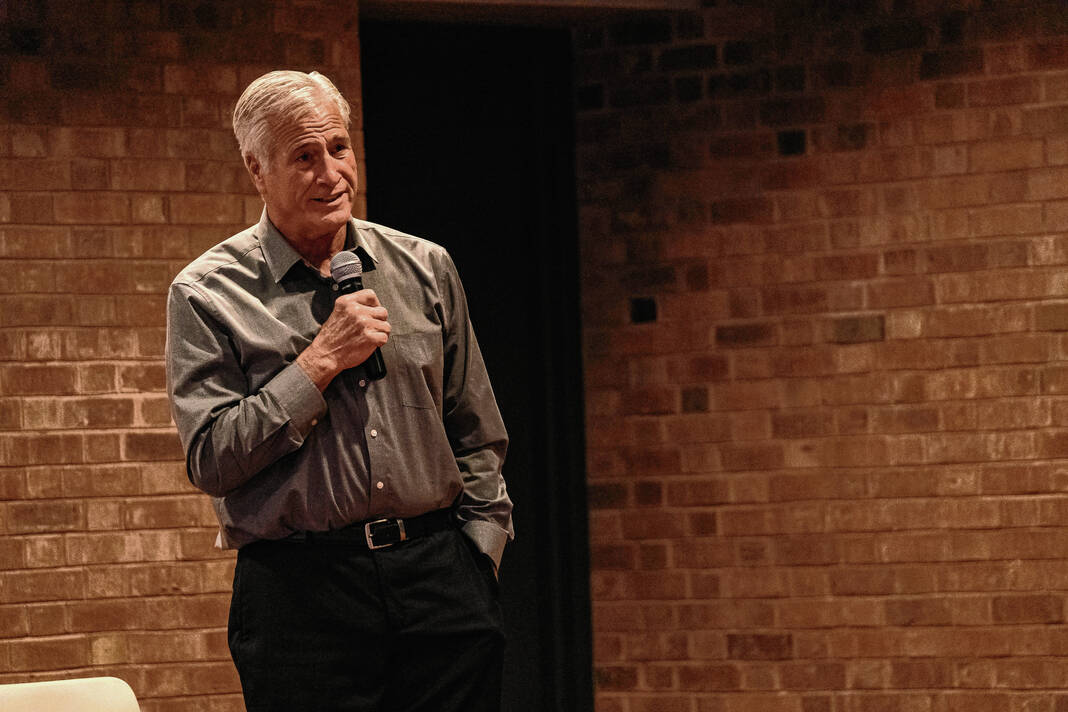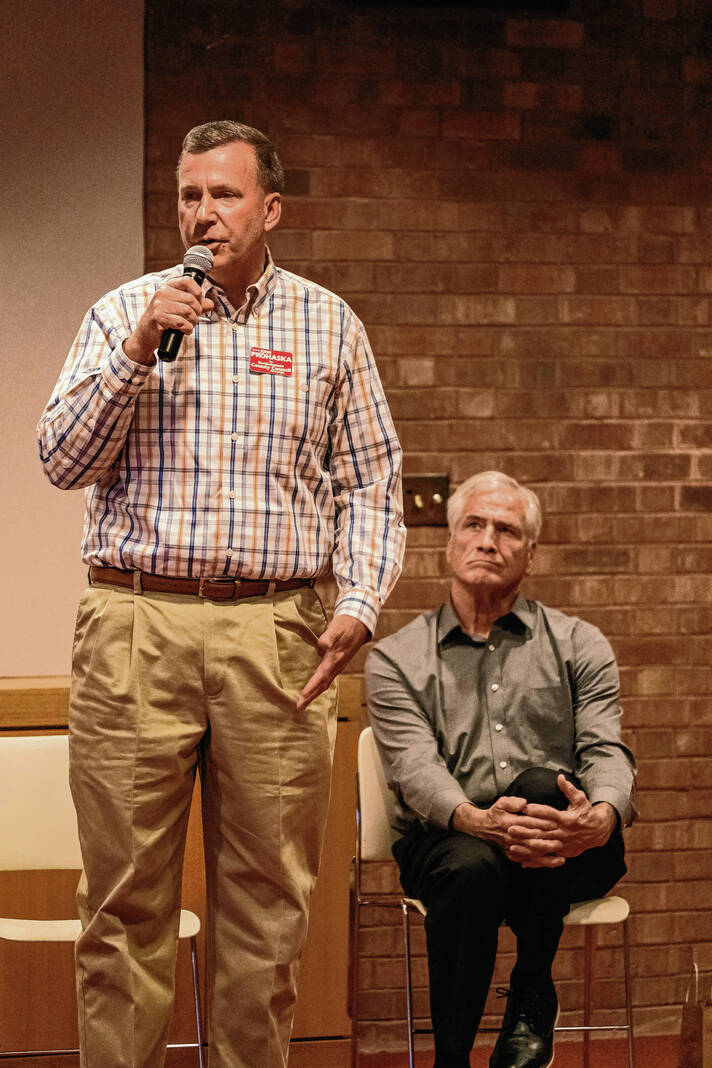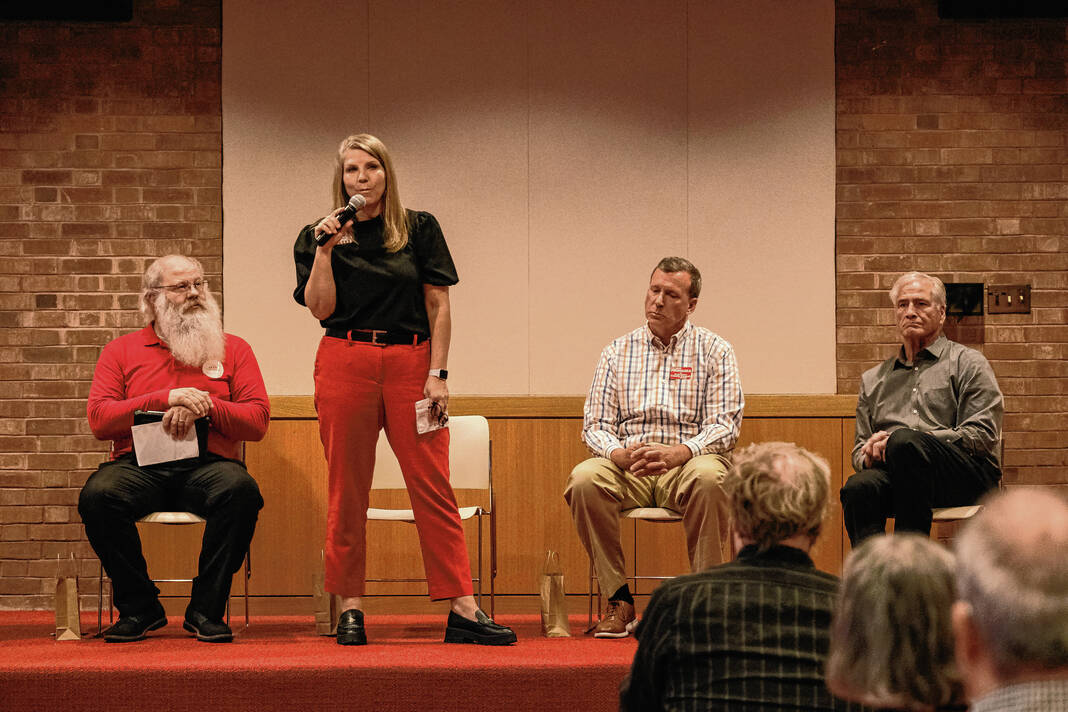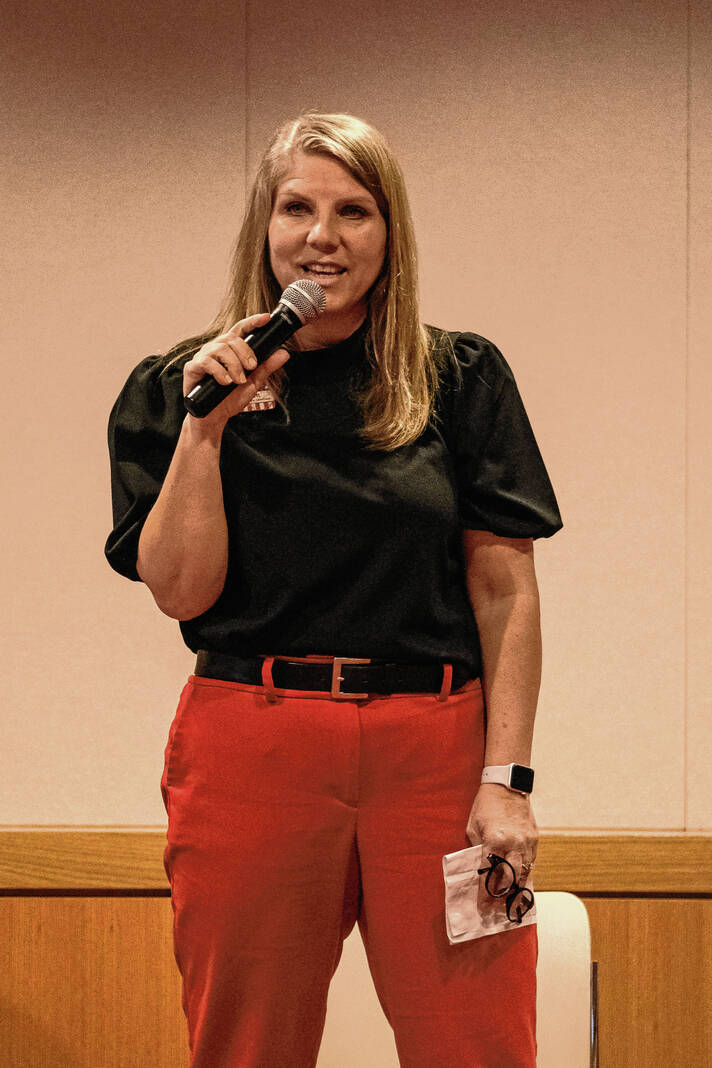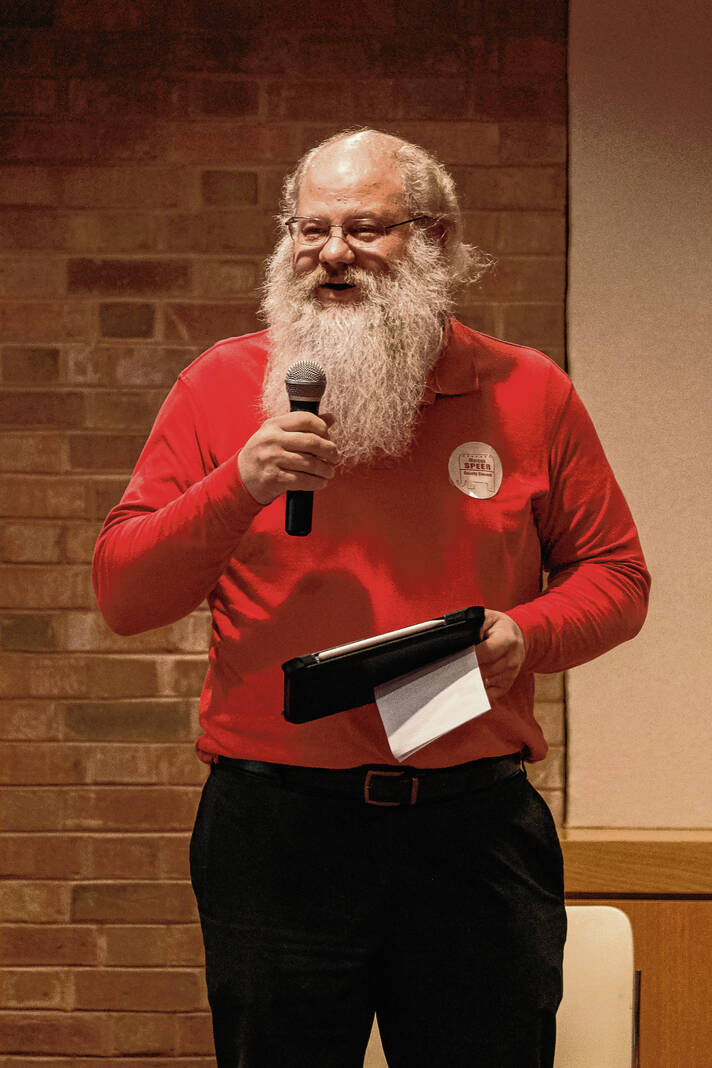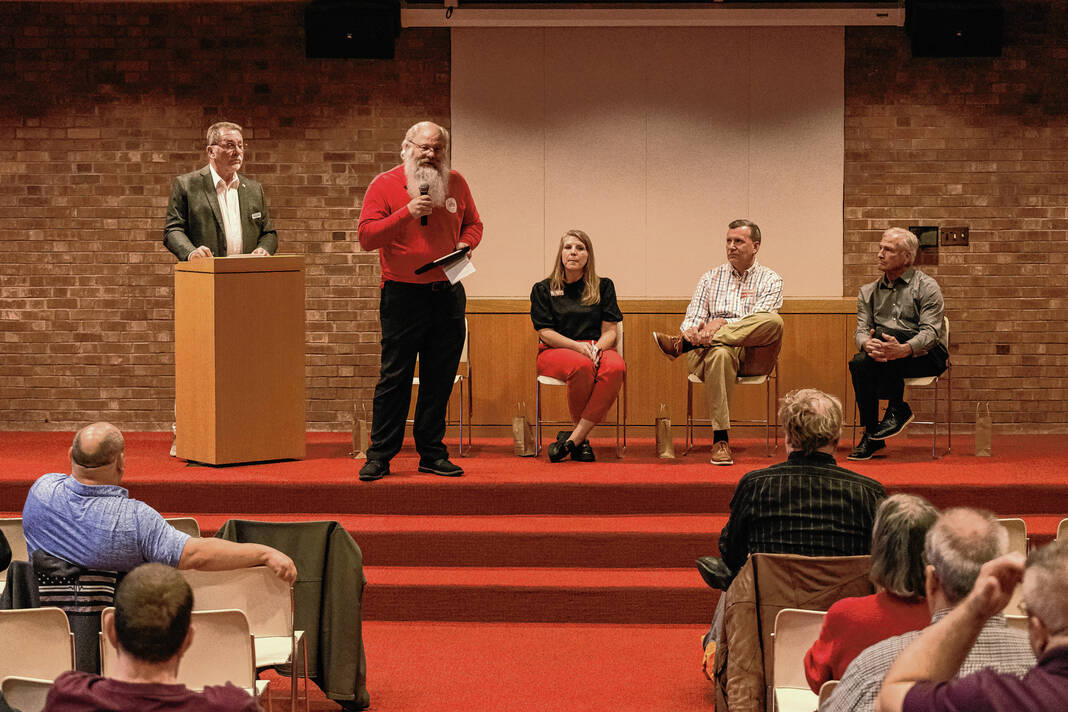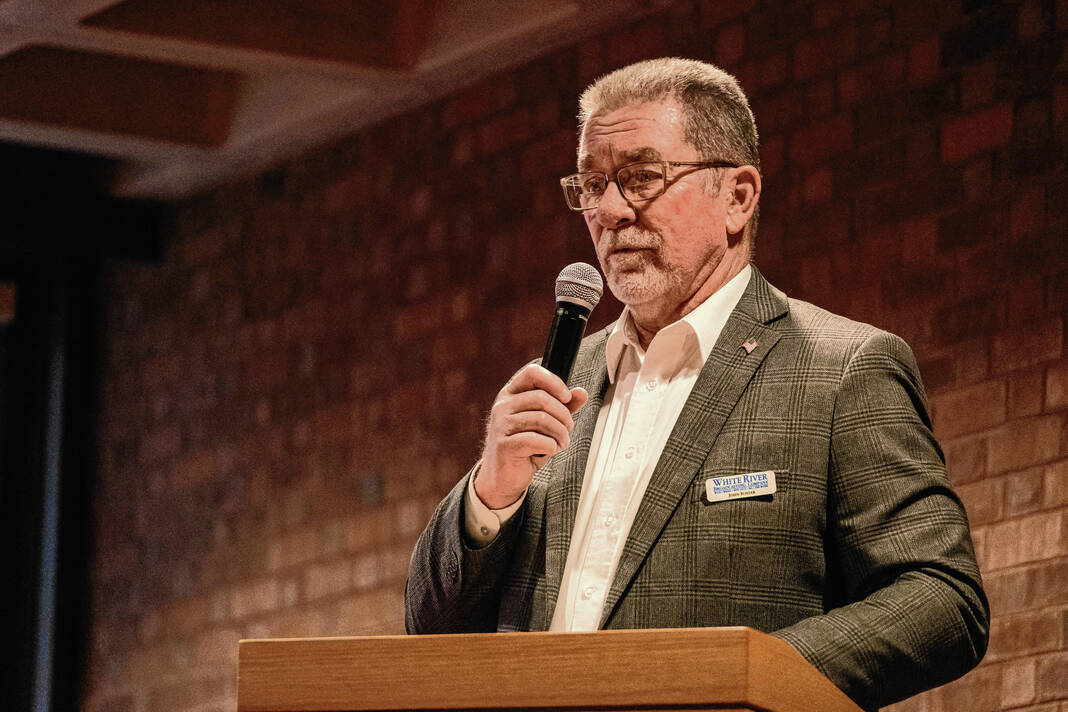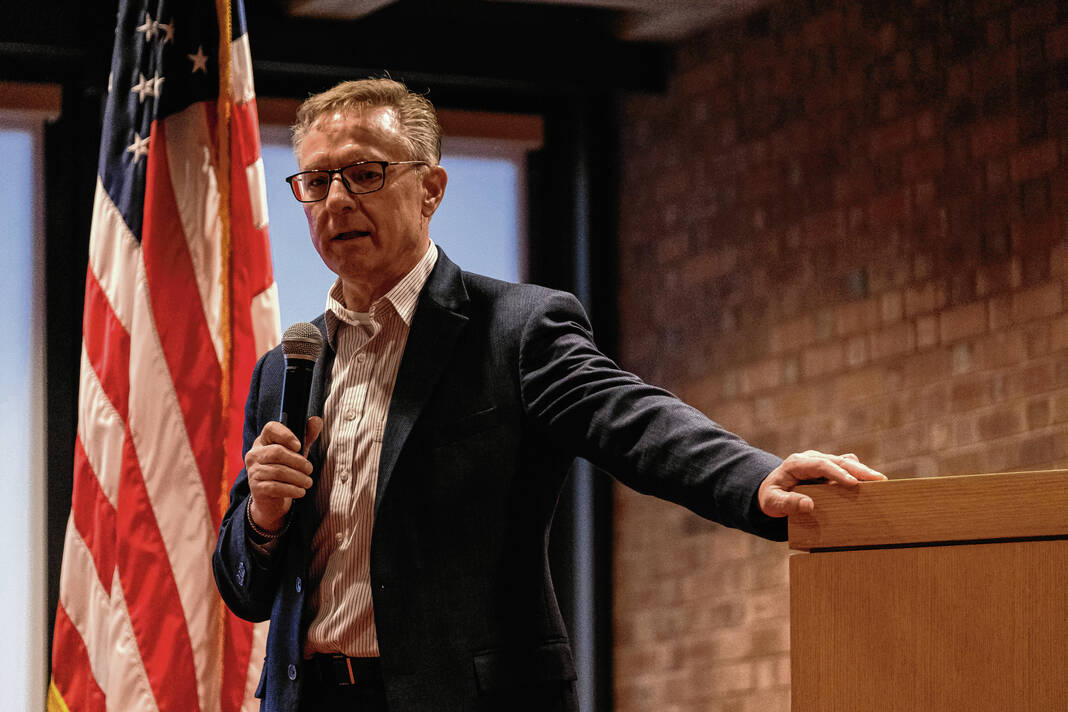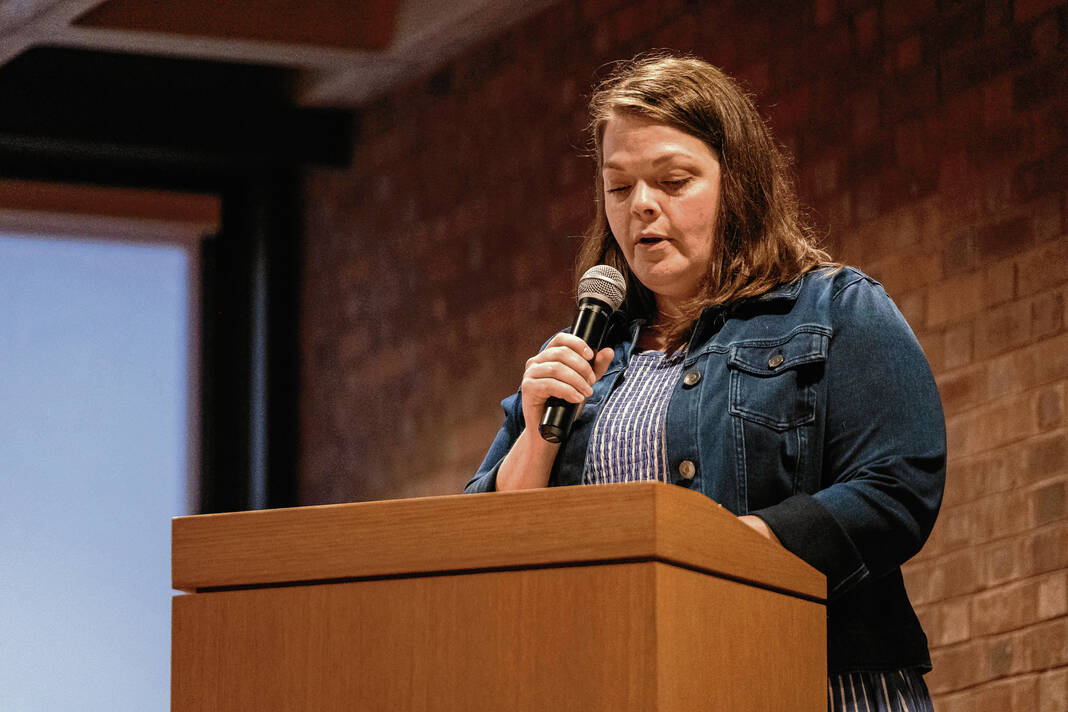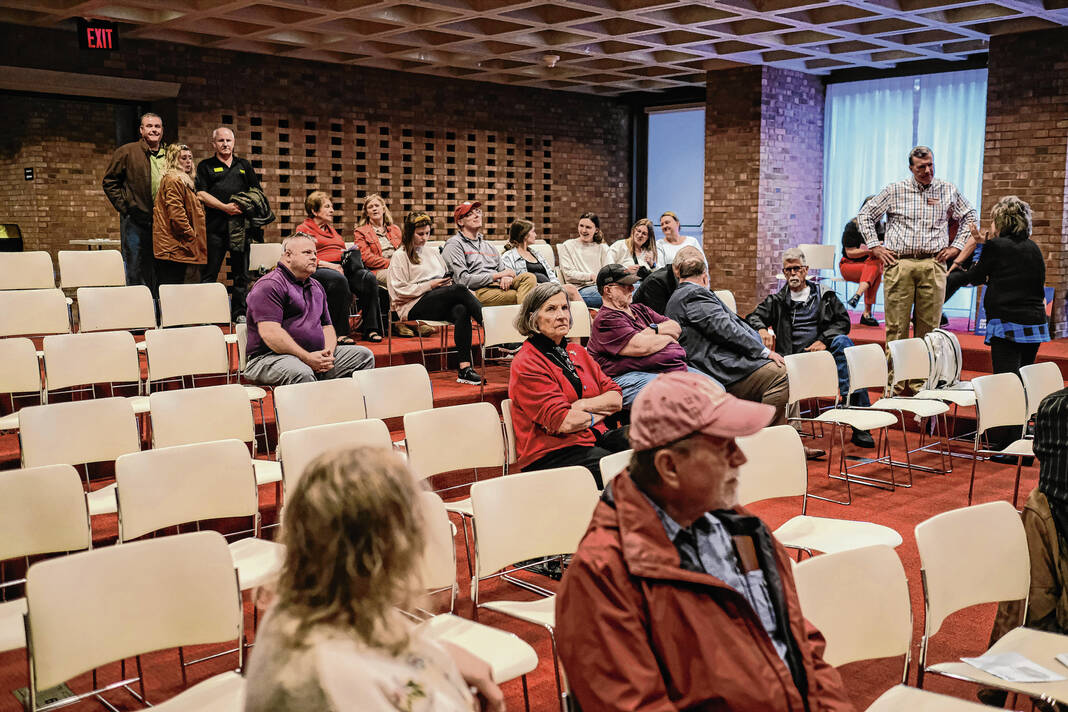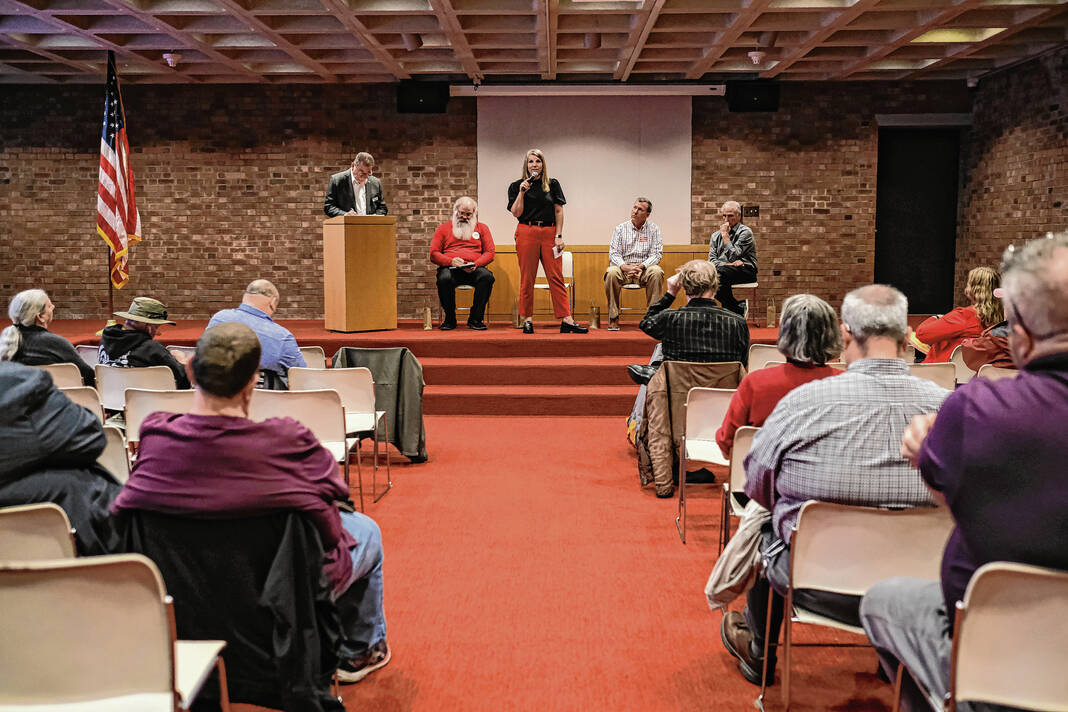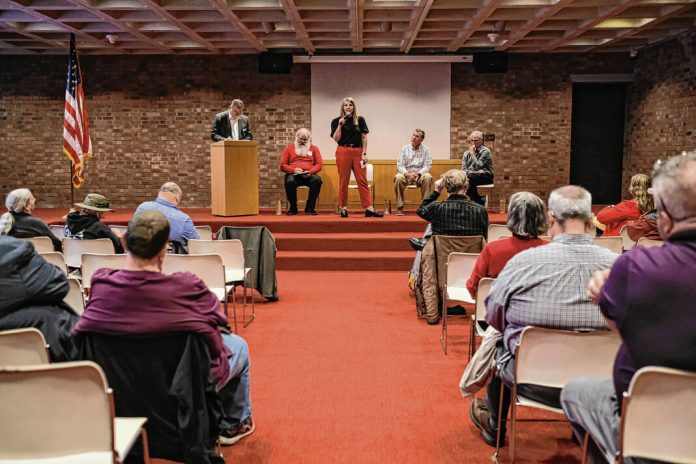
Mike Wolanin | The Republic John Foster, from left, moderates a candidate forum with Republican Bartholomew County Council At-Large candidates Marcus Speer, Kim Bennett and John Prohaska and Republican Bartholomew County Commissioner candidate Larry Kleinhenz in the Red Room at the Bartholomew County Public Library in Columbus, Ind., Thursday, April 11, 2024. The forum was organized by the Bartholomew County Republican Ladies League.
When the United Way of Bartholomew County gave an overview of its new homelessness initiative on April 2, executive director Mark Stewart called it a collaborative effort involving his organization, the Columbus City Council and Mayor Mary Ferdon’s administration.
On Thursday, both current and potential county government leaders took on the controversial topic.
Three at-large candidates for Bartholomew County Council, as well as one incumbent county commissioner seeking reelection, expressed their thoughts and concerns during a Bartholomew County Republican Ladies League forum at the Bartholomew County Library.
Two of the candidates, Commissioner Larry Kleinhenz and council candidate John Prohaska, say they believe much of the root cause of homelessness is mental health. Both men have close ties to those providing mental health services in Columbus.
Prohaska’s grandfather, Lowell E. Engelking (1909-1978), was a driving force behind the establishment of Quinco Consulting Center, considered the region’s leading mental health provider before the center became part of Centerstone in 2008.
Funding for mental health services needs to be increased in Bartholomew County, Prohaska said.
“But if you are just treating the symptom, you are not going to find the cure,” he said. “Putting a person in a house who is unable to mentally hold a job and create an income? All that is doing is putting a burden on the taxpayer.”
Kleinhenz’s wife, Annette, is a prominent psychiatric-mental health nurse practitioner. The couple have advocated on behalf of those with mental illness since losing a son during a schizophrenic episode in 2011.
As a result, Kleinhenz said he feels a great amount of empathy for those with mental illnesses. However, he also acknowledges there have always been homeless in every civilization.
“The increase of people with mental illness who find themselves homeless has really complicated the issue,” Kleinhenz said. “In government, we’re trying to figure out how to help some of those people while, at the same time, keeping in mind that the taxpayer would be required to fund many of those things if government takes a step forward.”
While Kleinhenz said he’s encouraging organizations such as churches and nonprofits to continue or increase their work in this area, the commissioner said government will still have to be part of the homeless solution.
Council candidate Kim Bennett says the homelessness problem is multi-faceted. She was the first at Thursday’s forum to acknowledge the United Way’s initiative, which cites a myriad of reasons for homelessness other than mental health.
They include a shortage of affordable housing, substance abuse issues, domestic violence, involvement with the criminal justice system and systemic poverty. About 80% of people who are homeless may have some sort of non-diagnosable cognitive impairment, Stewart said earlier this month.
“We need additional resources for mental health, whether or not we have homelessness,” Bennett said Thursday. “This is an example where different levels of government can come together. A perfect example where we can combine our resources and work toward a solution.”
If the Columbus City Council votes to approve the United Way proposal, they will eventually be voting to fund the initiative. City council member Josh Burnett urged Stewart early this month to seek financial assistance from county government as well.
While some U.S. communities have tackled the homeless issue with some success, Bennett warned some initiatives in American communities ended up increasing the number of homeless.
Stewart said the United Way strategies are “rooted in best practices” demonstrated in communities like Bakersfield, California, Rockford, Illinois and Milwaukee, Wisconsin.
Trying to convince others to acknowledge homelessness as a problem in their own community can be an issue in itself, county council candidate Marcus Speer said. But that same type of denial can be found in communities across the country, he said.
Since there is no expert in homelessness within county government, Speer said the county has to bring in qualified people to help address the issue.
“We also need to have other organizations such as churches,” Speer said. “We have to collaborate, because if we don’t, we just become part of the problem.”

